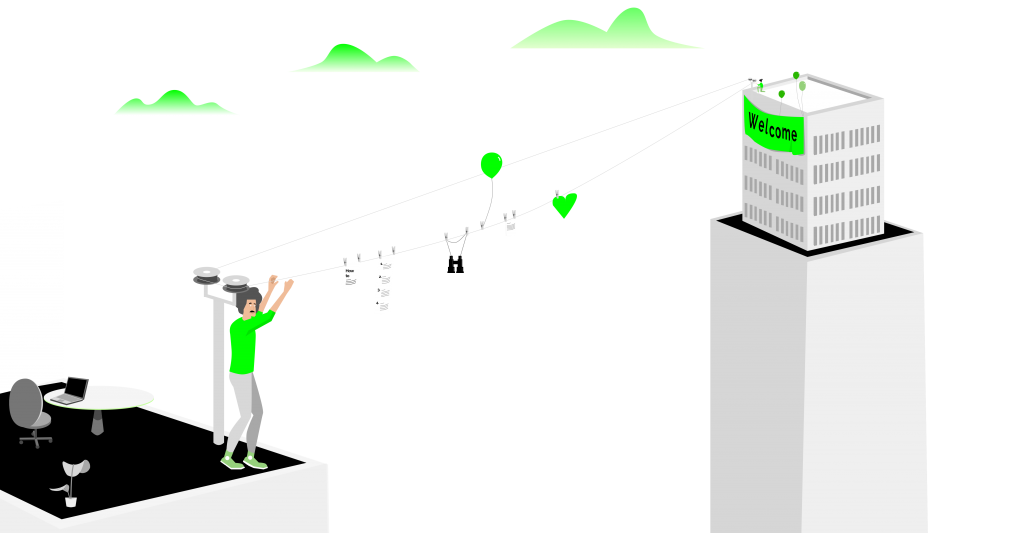I have been thinking about it for a while now: how can we make remote onboarding easier, more effective and more impactful? It is not an easy task. If your new onboarding strategy is “let’s do what we did but with video calls”, it will not work. Even if you throw the “let’s check in more often these days” component into the mix, it is not enough.
We are all adjusting to this new way of working, and even if you and your new team member are super digital, this is a new game we are playing.

#1 Prepare
Take time to review your onboarding process and think about every act again. It is a perfect time to revisit your onboarding strategy and think about how you can make it clearer and more explicit. Get that checklist out and rethink every ticking box: does it make sense now? How can you improve it?
#2 Planning many (video) meetings will not speed it up
We all need time to process info, especially when you join a new company. Adding tons of video meetings, which require extra energy, will make this processing task more difficult. Think about what is really necessary, and then think about it again. I suggest your focus goes also on making sure there is enough free space on the agenda of your new team member for her to process.
Meeting the team is one of those meetings you don’t want to skip, and you need to play it very explicitly this time. Plan it in advance and prepare it well. It is a good idea to give a heads up to everybody involved so they can prepare.
- Ask someone to explain in 5 mins what the team does and what they are busy with at the moment
- Ask everybody in the team to prepare a 1 min intro of themselves. Light and easy. And then maybe another minute so they can say how they can help best the new team member during the onboarding
- It would be great if someone in the team shares the team funniest story, that one everybody knows and that will make the new person feel part of the gang right away
- And what about sharing the achievement the team is most proud of?
#3 Let the new team member determine the pace
Defining your onboarding strategy thinking about how you would do it will not take you very far. Everybody has a different pace and a totally different way of digesting information, and even more when it is being done remotely. You need to be OK with that.
Instead of trying to control it, try redirecting your energy into making sure you have ready enough tools for the new team member to navigate independently:
- Prepare a clear map of where all the info the new team member needs is. Divide the information into essential and additional, and make sure all is clearly explained in writing. This will give so much additional brain space! New hires can this way go through the info at their own pace, diving into the details when needed.
- It is also a great idea to have a clear “who is who” document. Names and faces can become very blurry during a remote onboarding. It will help a lot if you indicate who is responsible for what, and where to go when help is needed with a specific topic.
Take into account that insecurity will appear for the new joiners as they will see how being onboarded is taking them longer than they thought, and also what they experienced in the past. I strongly suggest that you make clear the objectives for the onboarding phase and the timeline. Make the timeline flexible and the goals crystal clear.
#4 Be patient and make enough time
You are going to have to repeat things more than once, and that is OK. Make sure you do not add additional pressure and make sure you have enough time for questions and conversations. If they feel you are in a rush or not patient enough, it will cause a retreat that will make the onboarding longer and more painful.
Even if there is a buddy assigned during the onboarding, you as a manager need to make sure you have time to support them through this.
#5 Ask for feedback
Asking for feedback will help you get insights on your onboarding process, and identify improvements. But these days will also show extra interest in how your new team member is doing and will indicate a clear desire for making things better.
I would not wait too long and will ask the right questions after the first month:
- What could have we done better to make your onboarding easier?
- Talk about which parts were more impactful. And the ones which did not work at all
- Discuss how you can support her better from this moment on
Good luck!
Andrea


